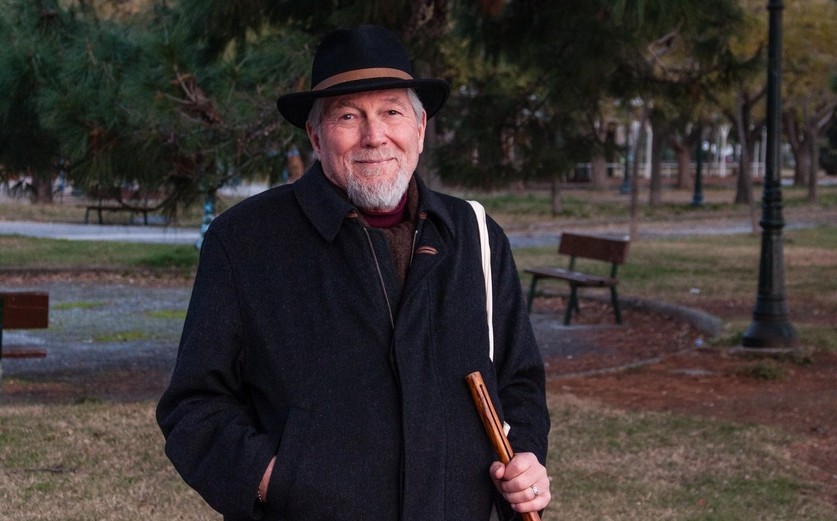The talented Dr. Goodman
Meet Dr. Robert Goodman
Dr. Robert Goodman, a plant biologist and virologist by training, is an expert on soil microorganisms and plant disease. Since 2005, he has served as Executive Dean of Agriculture and Natural Resources at Rutgers University, leading the “New Agriculture for a New Generation” program.
“Only in my more mature years did I realize that the course of my professional career could be predicted based on my family history,” Dr. Goodman said. His boyhood hero was his father’s father, a professor at Cornell University. His grandfather graduated in 1912 with a degree in agricultural engineering and farmer advisory services. He designed and promoted agricultural practices related to livestock and tile drainage systems to recover wetlands for crops and grazing.
When Dr. Goodman’s grandfather taught at Cornell, the Ford Foundation approached the university to launch a multiyear effort to rebuild the University of the Philippines in Los Banos. So his grandfather boarded a steamer, passed through the Panama Canal, and spent two years in the Philippines. During that time, he designed a sizable farm that is now co-owned by the University of the Philippines and the International Rice Research Institute, which advocates for further research into rice, the staple food of half of mankind.
After graduating from high school, Dr. Goodman went to Johns Hopkins University, wanting to become a physicist. But when he discovered that he “wasn’t gifted” in mathematics, he turned to biology. He transferred to Cornell, where he earned a bachelor’s degree in Plant Sciences and a doctoral degree in Plant Pathology. He spent a postdoctoral year at the John Innes Institute in England, then moved to the University of Illinois-Urbana for a professorship. He was promoted to full professor in 1981. He spent eight years in the private sector working as Executive Vice President of Research and Development at Calgene, Inc., in Davis, California, before returning to academia. He taught at the University of Wisconsin-Madison before coming to Rutgers University in 2005.
Leading “New Agriculture for a New Generation”
In 2013, the Stavros Niarchos Foundation (SNF) decided that the agricultural sector would be a main pillar of its €100 million “Recharging the Youth” initiative to create new opportunities for Greek youth. At that point, the Rutgers University Foundation began conversations with SNF.
“At Rutgers, we educate youth. We have a 4H program. We bring adjudicated youth back into society. We have a farm advisory and a nutritional education program. We provide food business education and create new products. We do everything that Greece needs to do,” Dr. Goodman said.
Eventually, SNF asked Rutgers to lead the “New Agriculture for a New Generation” program. Under Dr. Goodman’s leadership, the program conducted 16 feasibility studies to explore different sectors of Greek agriculture, to understand which product areas were successful already, which could absorb new workers, which were less capital-intensive, where there was export demand, and which food products Greece imports that could be produced locally. The program selected nine of the 16 sectors and built training programs around them. They also added a program in agrotourism/alternative tourism, a sector where much more could be done.
One third of the €25 million SNF grant will also be used to plan and build a food business incubator, similar to food incubators in Italy and Ireland. The incubator will contain a food safety lab, a sensory lab, agroanalytics, and a business space. It will be integrated into the training programs to help new businesses with research and development, the creation of new products, market analysis, packaging, storage, and exports.
“We plan to exceed the promised number of trainees, but the real measure of success is not how many young people you train, but how many get jobs,” Dr. Goodman said. “That’s why we’re sticking around to make sure these young people become successful. We need to build something that will last beyond our collaboration with SNF. I envision creating a public-sector entity to contain what we do now--something we can turn over to Greece. Our collaboration could become the foundation for a school that trains farm advisors, for example. I think it will take another decade for our intervention to really have an impact, and I want to be alive to see what happens. I want to see a vibrant food sector, repopulation of rural areas, and the restoration of a decent quality of life.”
“Greece has played a fundamental role in the spread of agriculture, and Greek agricultural products are in huge demand in the rest of the world,” Dr. Goodman said. “Often, the first thing Americans think is: consolidation and industrialization. But because of its difficult history--occupation, dictatorship, wars, crisis--Greece did not have the resources to industrialize, and actually, that’s a good thing. Greece has lots of small family producers, and now it has an opportunity to recover its agricultural sector through cooperation and collaboration, without consolidating wealth in the hands of a few. Greece needs to seek its own way, not look to countries like France. This same model helped Ireland’s agricultural sector recover. It’s labor intensive, but it can be done. The biggest challenge is to get people to work together, to standardize quality, and increase exports.”
“Agriculture is still an honored trade and profession in Greece,” Dr. Goodman said. “And in every agro-ecosystem, the best farmers do 50% better than the others. That has nothing to do with luck. It has to do with know-how, education, learning to do things better. And people learn best by doing stuff, by working with their hands. That’s the goal of our program.”

